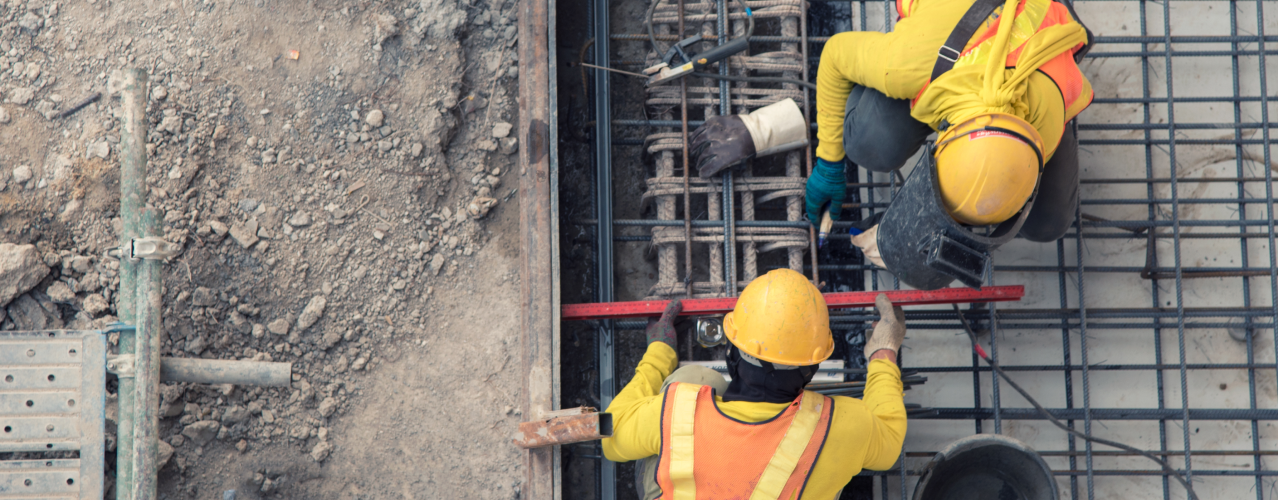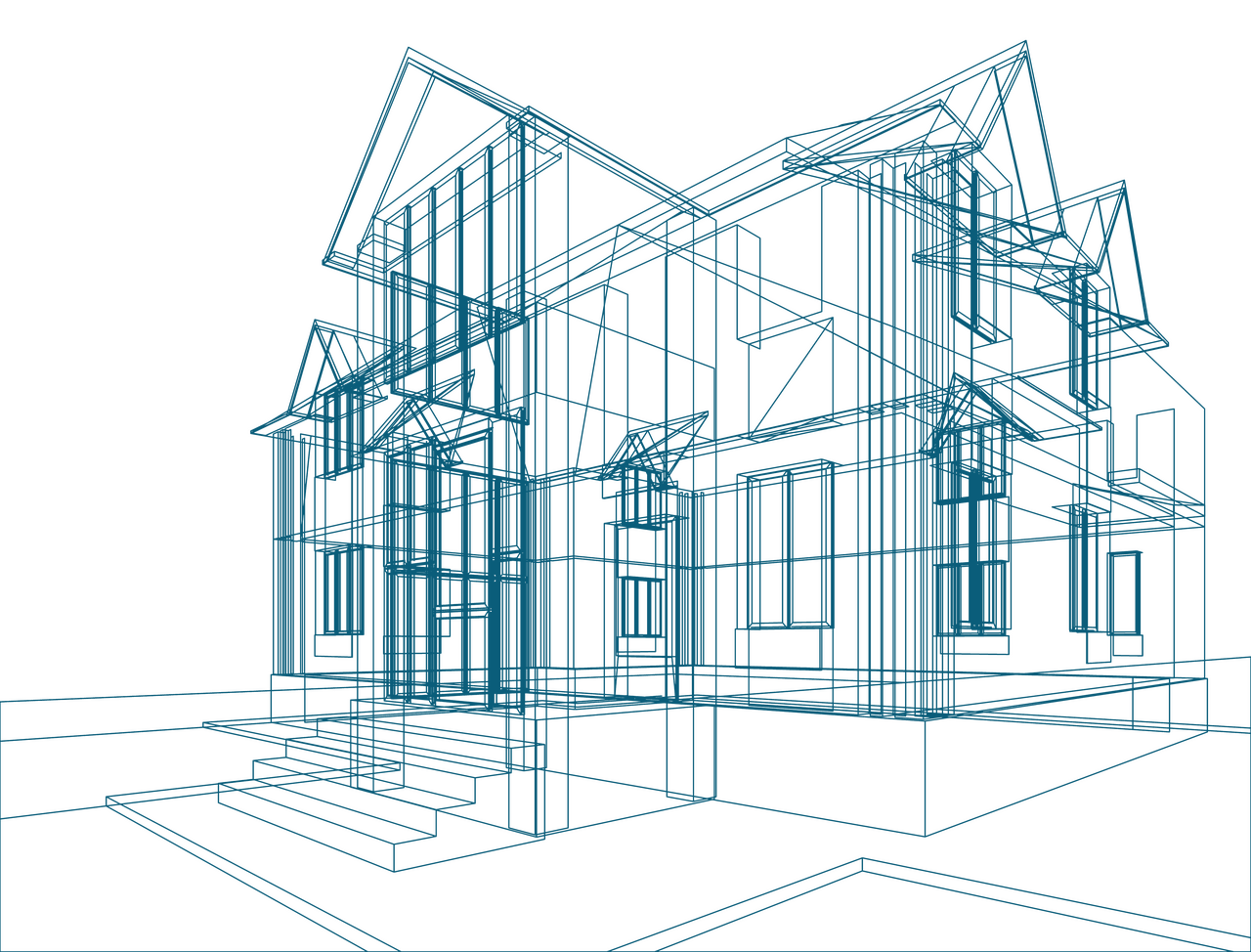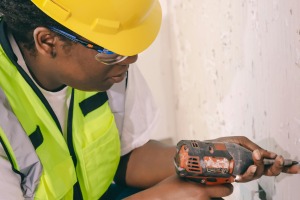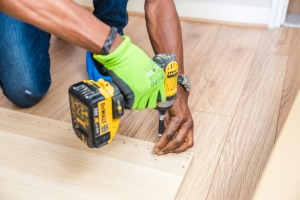


News I published 29 June 2022
BIM usage among installers shows slow growth but huge potential
Building Information Modelling (BIM) is one of the most important developments in the construction sector. Aside from being a part of the overall trend of digitalisation of the construction process, BIM touches upon many trends and developments in building construction. Using BIM facilitates increasingly complex building construction, easy sustainability calculations, using prefabricated elements and reduces failure costs, for instance. As such a central element, BIM has the potential to truly change construction.
Be that as it may, changes in the construction sector happen more often as steady evolution than quick revolution, which seems to be the case with BIM as well. We have seen that in the slow rate at which architects adopted BIM since we started measurements in 2009, for instance. Still, usage grew slowly but steadily and in 2021, 44% of European architects reported to be using BIM.
As a substantial share of architects is now using BIM in their projects, the question arises whether BIM is also adopted by other parties that are involved later in the construction process, like installers. For USP Marketing Consultancy’s European Mechanical Installation Monitor, we asked HVAC installers from six major European markets about their awareness, adoption and usage of BIM.
BIM usage among HVAC installers is only growing slowly


Although the share of European installers who are aware of BIM is rising rapidly, their usage of BIM is only growing very slowly. These low usage shares and slow adoption rate remind of where architects were about a decade ago, and are quite easily explained. For architects, who are often working with design software anyways, BIM has instant rewards, like additional design information and direct clash control. Installers are still working more traditionally and are still used to using drawings. To start working in BIM, they have to invest both in the necessary software and in training or hiring a colleague to be the BIM expert in the company. Absent a direct benefit, that investment is still too much for many installation companies.
In some cases, the direct benefits outweigh the investment though. The Netherlands is quite a frontrunner where it comes to BIM usage, as many building construction projects are already done using BIM. As a result, there is more of an incentive for installation companies to adopt BIM as well, and almost a quarter of the Dutch installation companies are already working with BIM. In other five countries in the scope the European Mechanical Installation monitor, however, the average usage of BIM among HVAC installers is still well below ten percent.
Future of BIM in the world of installation
A solid prediction is that BIM usage among HVAC installers will grow slowly but steadily over the next years. We have seen a similar adoption pattern among architects over the years. The next group of construction professionals in line to adopt BIM more rapidly are the contractors. Once BIM usage among contractors becomes a bit more common, we expect the adoption rate among HVAC installers to start increasing as well, firstly among the larger installation companies involved in new-build projects.
In the end, BIM offers the same to installers as it does to other parties in the construction process. They also want to reduce failure costs and will also have to deal with sustainability calculations, prefabricated elements and increasingly complex installations in increasingly complex buildings. As such, there is a huge potential for using BIM that is yet untouched by HVAC installers but will be explored and increasingly exploited in the years to come. For more information on BIM usage among HVAC installers in six major European markets, as well as their turnover development and order book portfolios, we refer you to the Q1 2022 report of USP Marketing Consultancy’s European Mechanical Installation Monitor.

Read more


12 December 2024 I Dirk Hoogenboom
Buying Behavior of Handymen


12 December 2024 I Henri Busker
Handymen Radar – Private Labels vs. Branded Products


12 December 2024 I Dirk Hoogenboom
Sustainability and Painting – What Matters Most?


12 December 2024 I Zeynep Kutsal
Are European Painters Getting Younger?

Fresh Insights Await
Our relevant reports
Delve into the newest findings across various market segments, crafted for a cutting-edge overview. Explore our insightful reports, brimming with up-to-date data, trend analyses, and in-depth examinations, all tailored to provide you with a comprehensive understanding of the current market dynamics.
Construction
Home Improvement
Installation
Special reports
Construction
Decision making process Q3 2024
2024 87 pages
Unveil the decision-making processes in the construction industry through the lens of European architects. Discover the factors that influence crucial decisions and the interplay among different stakeholders.
2,000 Euro
Construction
Prefab H1 2024
2024 63 pages
Discover the adoption rate and benefits of prefabrication technology among European contractors in H1 2024. Understand the driving forces behind prefab usage and its impact on project efficiency and cost-saving.
6,000 Euro
Construction
Sustainability 2024
2024 72 pages
Painter Insight Monitor 2024 will focus on understanding the specific needs, preferences, and challenges faced by painters when it comes to sustainable products.
11,000 Euro
Construction
Importance of branding & branding funnels 2024
2024 62 pages
This report offers a comprehensive overview of importance of branding and branding funnels with a specific focus on European handymen. Brand behaviour is covered for each country, showing purchasing power, differences regarding quality, sustainability, online shopping, innovation-habit and private labels,
8,600 Euro
Construction
Future of construction Q2 2024
2024 82 pages
Explore the evolving future in construction sector among European architects in Q2 2024. Delve into the factors driving material preferences and the impact on construction aesthetics and sustainability.
2,000 Euro
Construction
Trends in material usage Q1 2024
2024 102 pages
Explore the evolving trends in material usage among European architects in Q1 2024. Delve into the factors driving material preferences and the impact on construction aesthetics and sustainability.
2,000 Euro
Home Improvement
European Garden Monitor
2023 43 pages
Explore the European Garden Monitor, a comprehensive platform dedicated to garden health monitoring in Europe. Access valuable resources and expert advice today.
12,000 Euro
Home Improvement
Purchase channels Q2 2024
2024 90 pages
The European Home Improvement Monitor offers valuable insights on purchase channels in the European home improvement industry, examining the evolving preferences and behaviors of consumers across traditional retail and emerging online platforms.
3,500 Euro
Home Improvement
Sustainability Q1 2024
2024 81 pages
Delve into sustainability trends in the home improvement sector in Q1 2024. Discover consumer preferences and the shift towards eco-friendly home improvement solutions.
3,500 Euro
Home Improvement
DIY versus DIFM Q4 2021
2024 113 pages
This report is a must-have if you’re in the home improvement industry. It provides a wealth of information on the behaviour of DIY and DIFM consumers, their motivations, and the factors that influence their purchasing decisions.
3,150 Euro
Home Improvement
DIY or DIFM Q4 2023
2024 70
Explore the prevailing trends between DIY and DIFM in Q4 2023. Understand consumer preferences and the factors influencing their choice between DIY and DIFM.
3,500 Euro
Home Improvement
Branding Q3 2023
2023 93 pages
This report offers an extensive overview of the home improvement industry, with a focus on branding and the most popular brands within different categories. Within this report, you will gain insights into how customers perceive home improvement brands and what motivates them to buy certain products.
3,500 Euro
Installation
Services in the installation sector Q4 2024
2025 102 pages
This report provides a comprehensive view of the installer's requirements for services from manufacturers. Within the report, you will find information on the most needed services in each category: commercial processes, engineering, products & installation, and repair & maintenance. It also examines the services that installers offer to their customers.
3,250 Euro
Installation
Prefab Q3 2024
2024 110 pages
Uncover the adoption of prefabricated products in HVAC installations during Q2 2022. Delve into the benefits and challenges associated with prefabrication in HVAC.
2,800 Euro
Installation
Branding Q3 2024
2024 74 pages
Discover the power of branding in the home improvement sector. Explore how strong branding influences consumer preferences and purchase decisions.
3,500 Euro
Installation
Prefab Q3 2024
2024 119 pages
This report offers a comprehensive view of the installers’ involvement and needs regarding prefabricated electrical installations.
3,250 Euro
Installation
Smart & Connected Products Q2 2024
2024 120 pages
This report provides a comprehensive view of the attitudes of installers toward smart building solutions, specifically among electrical installers and their clients. In the report, you will find insights into the installers' experiences with installing smart products and the willingness of end users to invest in such solutions, as well as their motivations and pain points.
3,250 Euro
Installation
Smart and connected products Q2 2024
2024 129
This report provides a comprehensive view of the attitudes of installers toward smart building solutions, specifically among HVAC installers, plumbers and their clients. In the report, you will find insights into the installers' experiences with installing smart products and the willingness of end users to invest in such solutions, as well as their motivations and pain points.
2,800 Euro
Special reports
European Sustainability Report 2024
2024 51 pages
This report provides in-depth insights based on triangulation of key market information and data as well as data from USP Marketing Consultancy’s key monitors that are carried out year in, year out. The focus of this report is on the most important stakeholders within the construction industry, namely architects, contractors, electrical and HVAC installers within The United Kingdom, The Netherlands, Belgium, Germany, Poland, France, Italy, and Spain.
3,950 Euro








